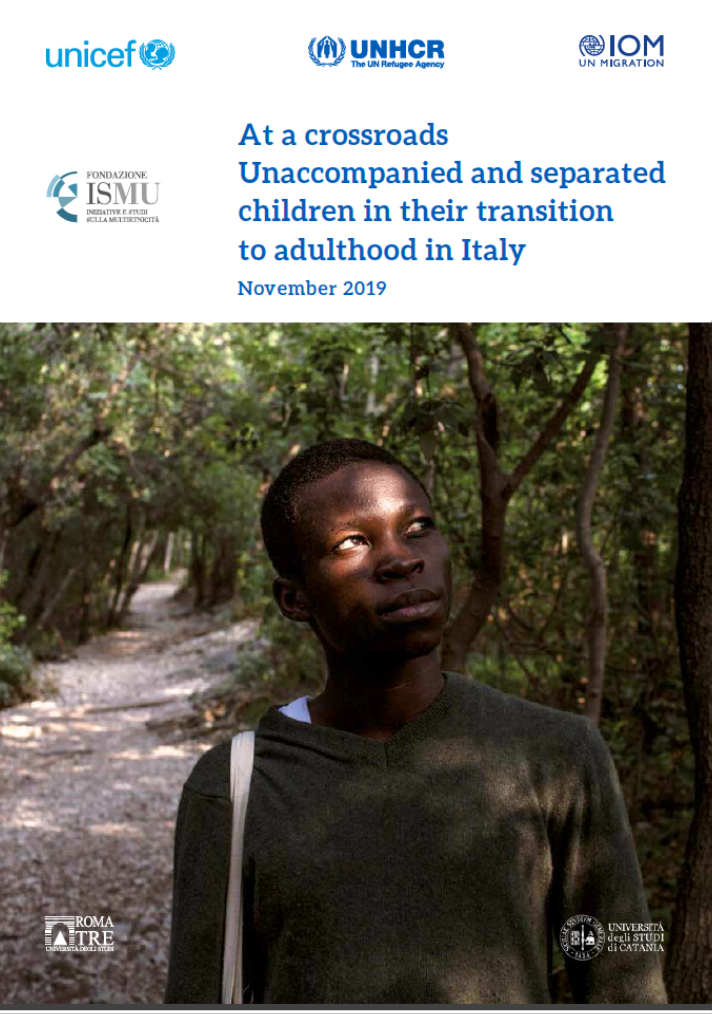This research, commissioned by the United
Nations Children’s Fund (UNICEF), the United Nations High Commissioner for
Refugees (UNHCR) and the International Organization for Migration (IOM),
provides an overview of trends and possible pathways of transition to adult
life of UASC in Italy. The main objective of the research, which has focused on
the three regions hosting the highest number of UASC (Sicily, Lombardy and Latium),
is to provide evidence on the factors that are facilitating or constraining
this transition, both at the individual and structural level. To understand
these multiple factors, the research has examined seven areas that are
influenced by the legal status and residence permits of UASC and UASC who have
turned 18: (i) access to education, vocational and on-the-job training, (ii)
access to the job market and the risks related to informal labour and
exploitation, (iii) access to adequate housing solutions, (iv) experiences with
volunteer guardians; (v) the role of formal and informal relationships; (vi)
relationships with families of origin and the possibilities of family reunification;
and (vii) the risk of onward movements.

